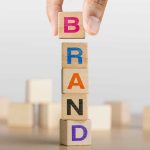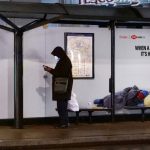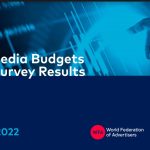
Three Cyber Grand Prix awards went out at this year’s Cannes Lions, and as an added treat for us in Malaysia, each of the winners will be covered in great detail at the upcoming Best of Global Digital conference on August 14th at the Sime Darby Convention Centre.
As a taste of what’s to come, journalist and content marketing veteran Hando Sinisalu has interviewed the three winning agencies from Stockholm, Melbourne and New York.
Here is the third one from Stockholm.
Bank of Aland (based in a small archipelago in the Baltic sea between Sweden and Finland) created a unique environmental index that demonstrates the environmental impact of consumption based on the credit card statement. The index won a lot of attention worldwide – from the United Nations to Mastercard.
BACKGROUND
Bank of Åland Plc (Ålandsbanken) is a Finnish commercial bank and banking group with over 700 employees and operations in Åland islands, Finland and Sweden. The bank was founded in 1919.
Bank of Åland has 30 branch offices across Finland and Sweden, and the number of retail and private banking customers is about 90,000. In Finland, Bank of Åland is a full-service bank focused on private banking and premium banking.
The bank states in their web page: “We are careful with our customers´ money. We are not so fussy about titles. We trust each other. These are values that we live by, in everything we do.
In the early 1980s, we opened our first office on the Finnish mainland. Those who visited us soon noticed that we were unusually informal. There was not much bowing and scraping. Instead, people were invited for a nice chat over a cup of coffee.”
THE BRIEF
Ålandsbanken has been working with funding environmental projects for 20 years, and they’ve put a lot of money into it. Social responsibility is part of their DNA. But there was a story that hadn’t been told. Their focus has been a bit too wide, so they decided to focus on the Baltic Sea as it’s more relevant to their home market.
CREATIVE IDEA
Baltic Sea Credit Card – non-plastic plastic card

Mathias Wisktrom, CEO of Swedish agency RBK who created the project, explains:
“We decided to develop a credit card – the Baltic Sea Credit Card. With the use of this card, some money went for the support for the clean Baltic Sea. It didn’t make sense to have a typical plastic card, so the material of the card was fully bio-sourced and we devoted the full front side of the card to the cause, writing “I support a clean Baltic Sea” on it. It was all based on the insight that today prestige is more about social responsibility than just having the platinum card. If I take out a credit card that shows that I care – it fills my social prestige in a different way.”
Aland Index – credit card statement that shows the environmental impact of consumption
But we weren’t still happy because we felt that the problem is that people don’t just need a new credit card but they need new knowledge as well. And that’s why we decided to develop the Åland Index – to bridge the gap between the cause and the effect. It was the first bank index for everyday environmental impact. The index used every retailer’s specific merchant category code, which was then cross-referenced with financial market data on the carbon footprint of these industries. This made it possible to calculate the carbon footprint of every individual transaction. Based on this info, personal reports on the environmental impact of consumption were made and presented together with people’s monthly bills. Monthly bill always gets a lot of attention because people want to see the ‘damage’ that has been done to their finances. Now it also showed the damage that has been done to the environment. But we didn’t want to leave people with the feeling that they are the bad guys doing harm to the environment, so we also presented them options to compensate – by supporting local or global environmental projects or by changing their lifestyle.
The rest is history. Soon the United Nations picked it up and invited Ålandsbanken managers to speak about the project at several high-level events. That helped to get the word out.
RESULTS
– Earned media value: 350 Million EUR;
– Brand awareness increase: +308%
On top of that, there have been several high-net-worth individuals who have moved a lot of their capital to Ålandsbanken because the bank has positioned itself in this way.
Interview with Mathias Wikström, CEO of RBK communications agency (Sweden)

Did media picked it up organically or did you have to push it with some help from PR specialists?
One of our core ambitions was to have the media scrutinize this project and to question this – is it a good idea, how does this work, etc. We wanted people to really dig in to understand what we’re trying to do. But yes, we did have Hill+Knowlton in Stockholm working with us too, helping to push it a bit, selecting journalists from business press, etc. But it wasn’t a very big initiative. We wanted it to start small but once it took off it started growing organically.
There were also a lot of people in social media pushing the conversation, e.g. asking “why doesn’t my bank have this?” etc.
Can you think of any lessons that other marketers can learn from this case?
Dare to be a bit braver and think bigger, even if you are a small player in a small region.
When you’re creating communication for change you can stand on the shoulders of the giants. And that’s what Åland Index is all about. We stood on the shoulders of giants like MasterCard, KPMG, Thomson Reuters and WWF. One of the most important insights is not to have just a great idea, but to have that great idea executed together with such large companies. And it all comes down to the people. We found the right people who wanted to be part of something like this and really tried to support us in every way they could. Without such partners we would have never made it on our own. They have been very supportive and come out of their comfort zone and ordinary ways.
I think it’s also always important to look back. Especially in projects of this scale – where you’re working with all these big companies, deal with all this kind of innovation, Big Data, digital solutions, etc. You sometimes just have to stop and look back – in order to remind yourself what is it that you’re really wanting to achieve and how does this correspond with the DNA of the brand. So that the success won’t become a value in itself. It’s of course amazing to win awards, but if you ask me what I’m most proud of, then it’s the confidence and trust that the bank has put in us.
What advice would you give to other smaller agencies – how to win such confidence and trust?
I think agencies in general need to understand that the world is facing new challenges and instead of helping clients to just sell more, we nowadays need to help clients to still be around. For many years, PR and corporate communication people have worked around issues like sustainability and responsibility while ad agencies have been more focused on how to improve business results and sell more. I think that these days we need to come deeper into our clients’ business and s
how them that we have a good understanding of it. We need to earn the trust by challenging our clients with some important questions, such as sustainability for example. You build trust through challenging because by challenging you can add value and adding value brings you trust.
There’s more where this came from and it’s going to be at the 7th Best of Digital Conference at Sime Darby Convention Centre on August 14. If you’re hungry for more insights, click here to find out more on the ‘Best of Global Digital Marketing Conference’ or contact Ruby at 03-77262588 or [email protected]
BEST OF GLOBAL DIGITAL MARKETING Conference 2017
For the seventh year running, we are bringing back the famous Best of Global Digital Marketing Conference to KL with a special focus on Content Marketing this year. Unique case-study based learning, as our team monitors over 200 digital marketing award shows across the globe and interviews the winners. Based on this extensive work, we produce in-depth case studies.
Speakers with digital domain expertise:
• Hando Sinisalu, CEO of Best Marketing International
• Kyoko Yonezawa, Creative Technologist and member of Dentsu Lab Tokyo
• Scott Gray, Experience Director, Mirum South Africa
Global Case Studies include:
BANKING & INSURANCE: Compare The Market, Advocards, Allianz, Ally Bank, Barclays….
TECHNOLOGY & STARTUPS: Hubspot, Pipedrive, MoveHub….
AUTOMOTIVE: Volkswagen, Volvo, Nissan, etc FMCG: Ariel, Unilever, Snickers…
RETAIL: McDonald’s, Harvey Nichols, Zalando….
TRAVEL & TOURISM: Qatar Airways, Transavia, Finland Tourism, Sweden Tourism, KLM…
Each best practice case study is presented based on…
Business problem: What is the market situation? Who are the competitors? What is the target audience? What are the main business/marketing challenges? What are the goals?
Solutions: What are the consumer insights? What was the creative strategy? What was the media strategy? What were the results of the campaign?
Lessons: What other marketers from other countries/other business sectors could learn from this case study? What are the main mistakes to avoid?
The Best of Global Digital Marketing Conference has won popularity in more than 30 cities around the world from Singapore, Moscow, Jakarta, Istanbul to Amsterdam, Johannesburg, Prague, Shanghai, Seoul, etc.
Date: 14 August, 2017 (Thursday)
Venue: Sime Darby Convention Centre, Kuala Lumpur.
Time: 8.30am – 5.00pm
Book your seats early! Call Ruby on 03-77262588 or [email protected]
MARKETING Magazine is not responsible for the content of external sites.
An afternoon of conversations we never had, with leaders most of you never met.
Discover what’s possible from those who made it possible. Plus a preview of The HAM Agency Rankings REPORT 2024.
Limited seats: [email protected]
BOOK SEATS NOW











